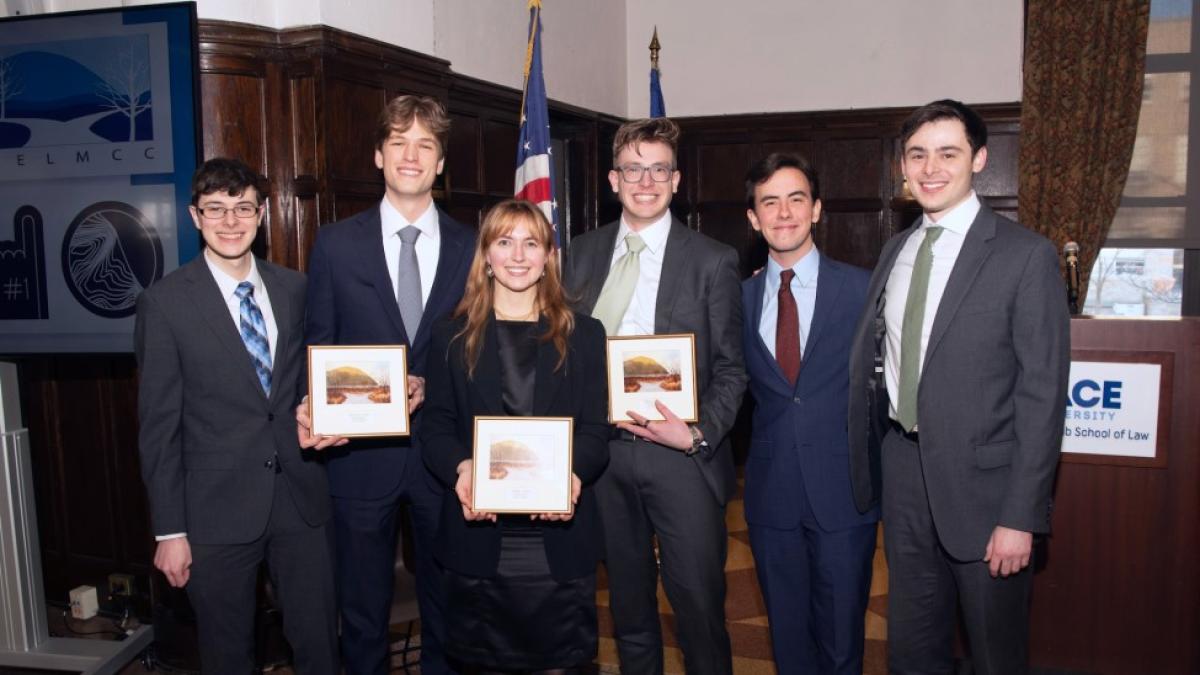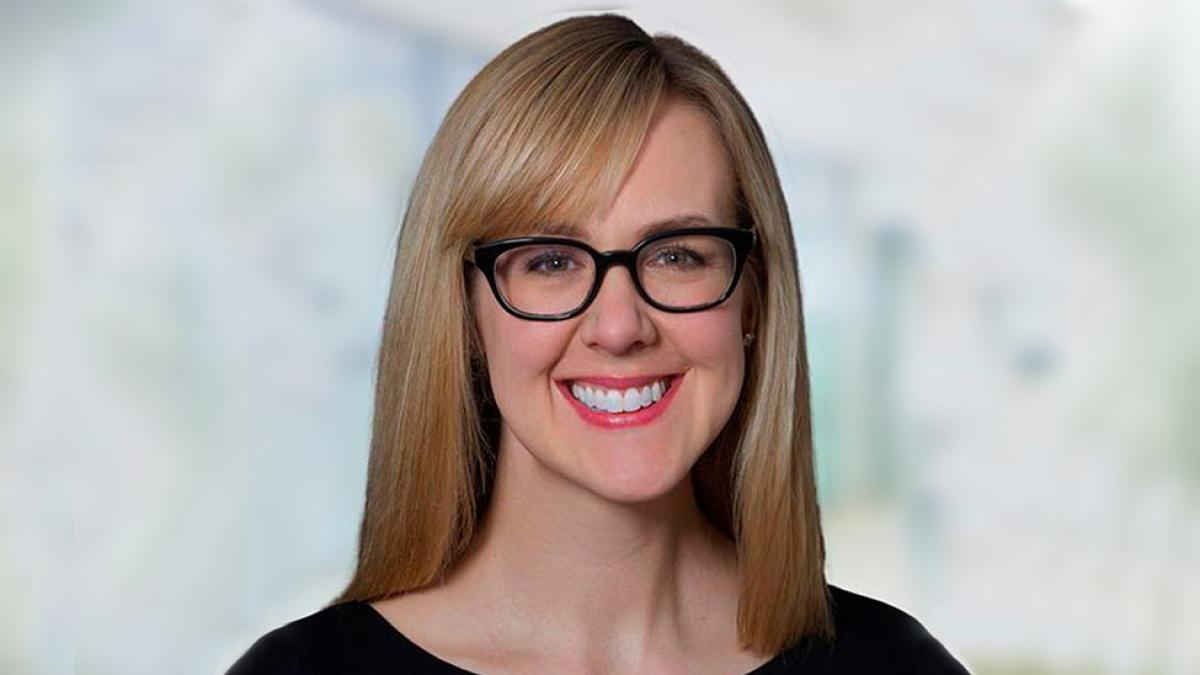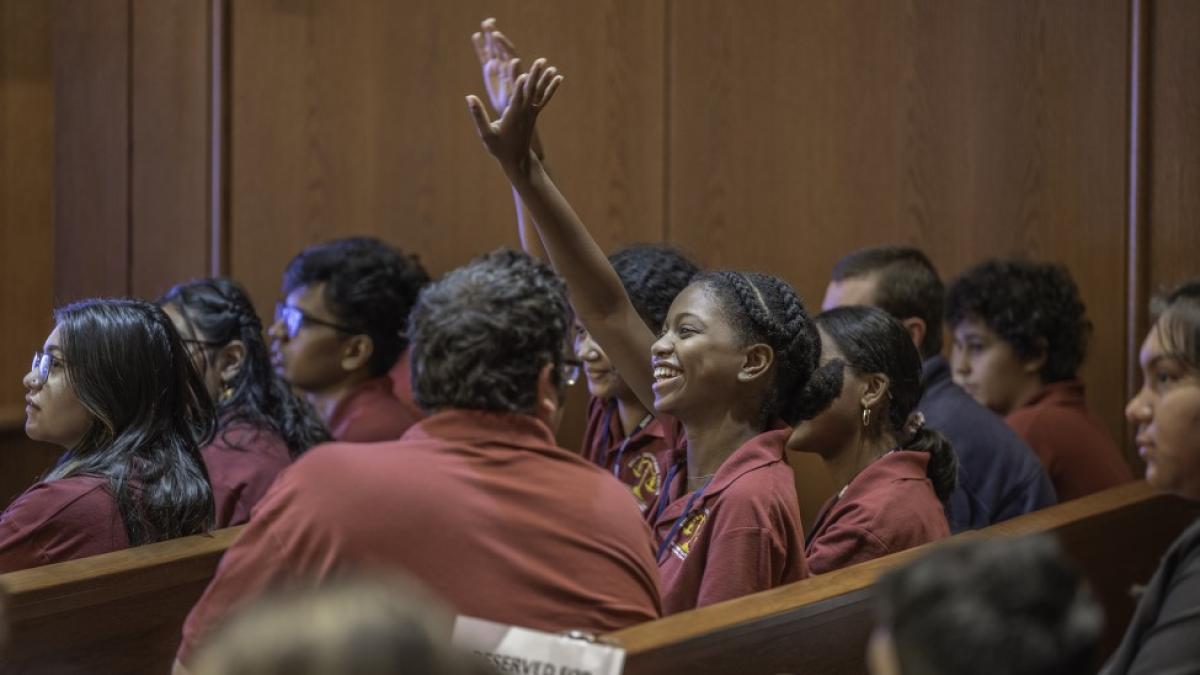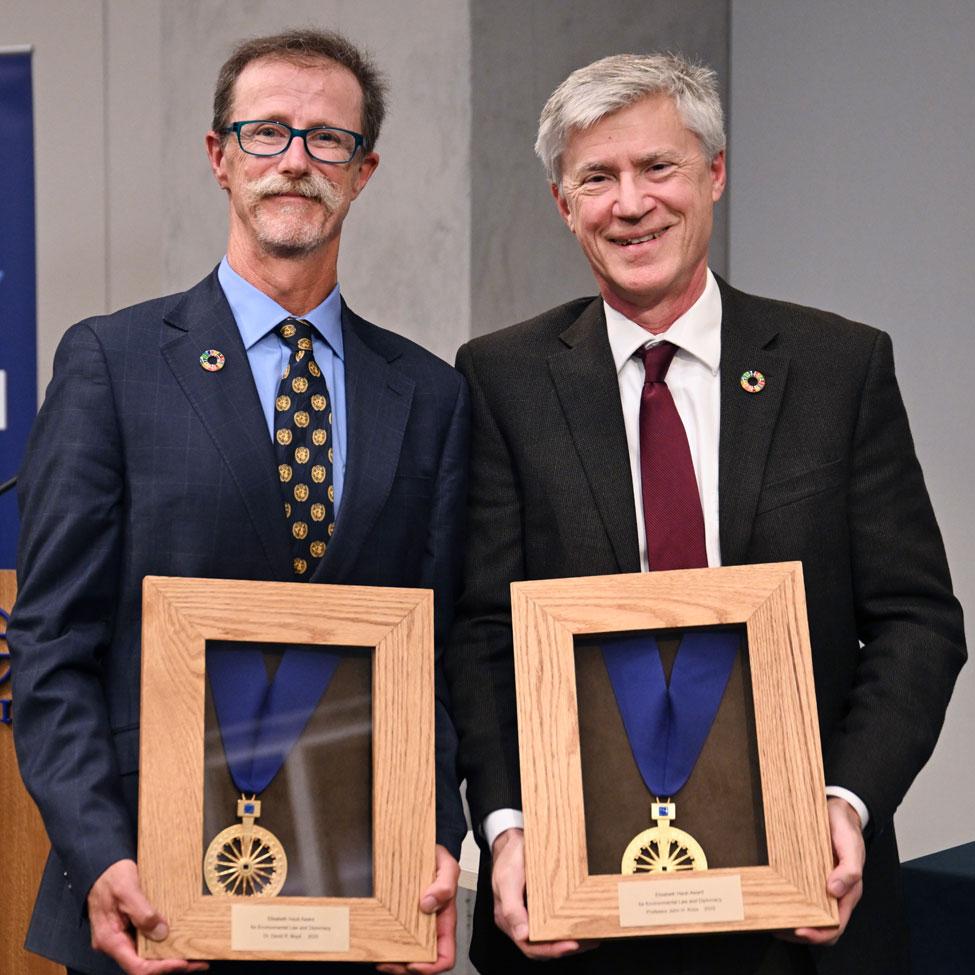
Prestigious 2025 Elisabeth Haub Award for Environmental Law and Diplomacy Presented to John Knox and David Boyd for Advancing the Right to a Healthy Environment
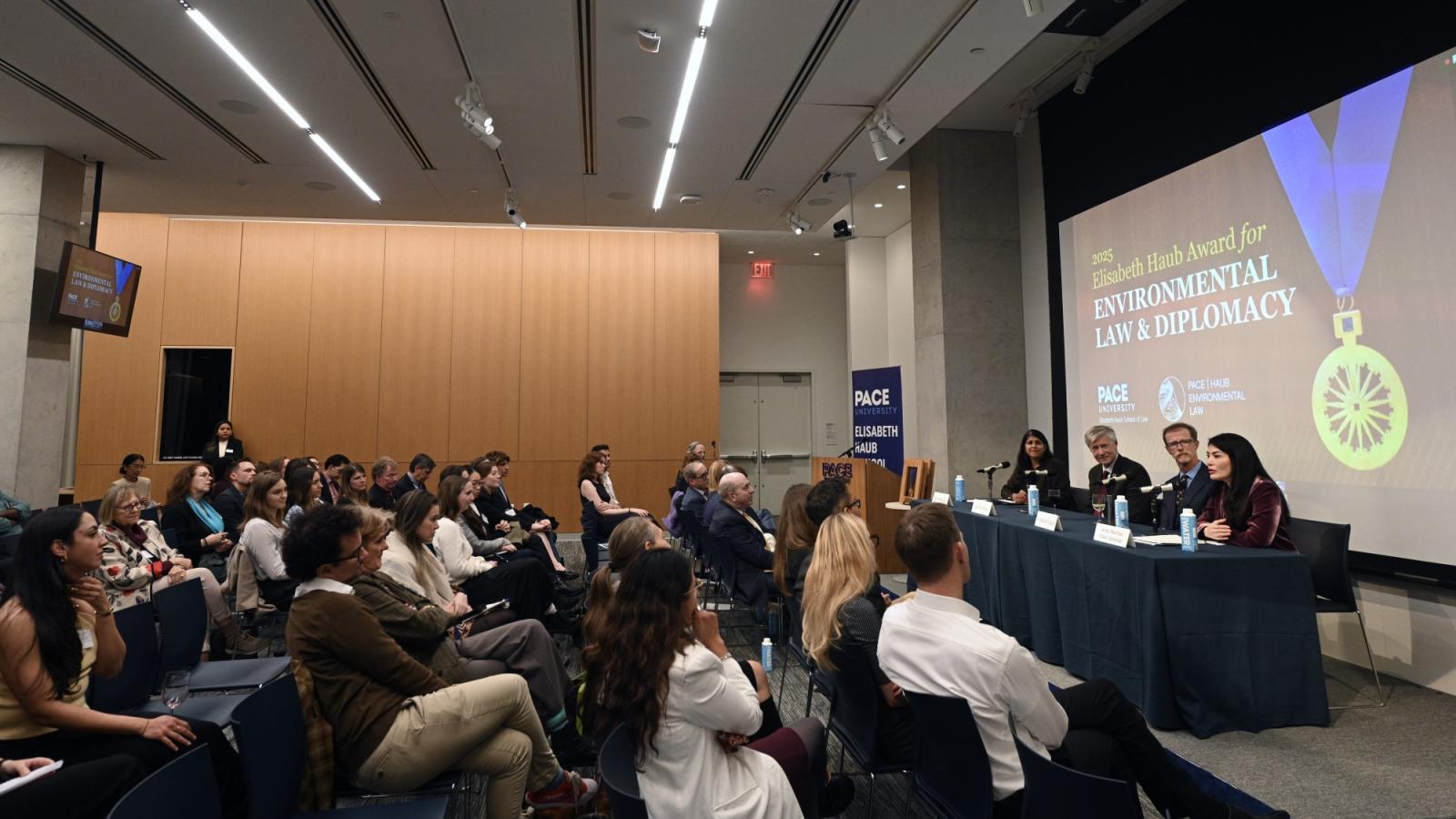

The Elisabeth Haub School of Law at Pace University proudly conferred the 2025 Elisabeth Haub Award for Environmental Law and Diplomacy on Professor John H. Knox and Dr. David R. Boyd for their groundbreaking leadership as successive United Nations Special Rapporteurs on the human right to a healthy environment. The award was presented on October 23, 2025 at Pace University in New York City before an audience of environmental and human rights advocates and supporters joining in person and virtually from around the world.
“John Knox and David Boyd are visionary leaders who laid the legal and moral groundwork for one of the most consequential developments in international environmental law: global recognition of the human right to a healthy environment,” said Horace E. Anderson, Jr., Dean of the Elisabeth Haub School of Law at Pace University and President of the Haub Award Jury. “Their work represents more than the contributions of two individuals; it symbolizes what can be achieved through sustained advocacy, diplomacy, and global cooperation.”
Pace University President Marvin Krislov lauded the laureates’ impact: “Through their work as United Nations Special Rapporteurs, they have made that right clearer, stronger, and harder to ignore. We are honored to celebrate leaders whose efforts have advanced environmental protection through law and diplomacy on the world stage.”
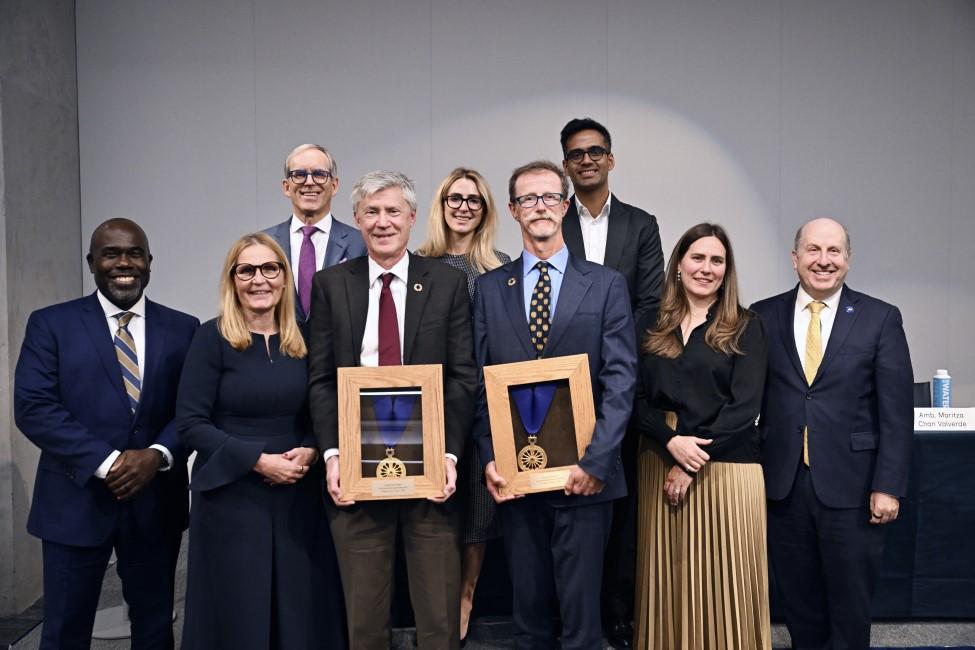
Following introductions by Pace | Environmental Law Professors Katrina Fischer Kuh and Camila Bustos, the award was presented by Pace University Trustee Liliane Haub, a member of the Haub Award Jury, joined by members of the Haub family including Christian Haub, Marie-Liliane Haub, Anna-Sophia Haub-Singh, and Amarpreet Haub-Singh. “Through their leadership and collaboration, Professor Knox and Dr. Boyd have helped turn a powerful idea into a recognized international right: clean air, safe water, and a healthy planet for all,” said Ms. Haub.
John H. Knox, Henry C. Lauerman Professor of International Law at Wake Forest University, served from 2012–2018 as the UN’s first Independent Expert and later the first Special Rapporteur on the human right to a healthy and environment. His mandate culminated in the Framework Principles on Human Rights and the Environment, clarifying states’ obligations to protect the environment under existing human rights law and foregrounding non-discrimination and protection of environmental defenders.
David R. Boyd, a professor at the University of British Columbia, served as Special Rapporteur from 2018–2024. He built a global coalition of governments, UN agencies, and more than 1,300 civil society organizations, filed amicus briefs in landmark cases, and produced over 30 UN reports documenting how recognition of the right is driving cleaner air and water, stronger laws, biodiversity protection, and climate action.
Together, Knox and Boyd helped catalyze the UN Human Rights Council (2021) and UN General Assembly (2022) resolutions recognizing the human right to a clean, healthy, and sustainable environment, momentum reinforced this year by the International Court of Justice’s advisory opinion which affirmed the right as part of international law.
Through their leadership and collaboration, Professor Knox and Dr. Boyd have helped turn a powerful idea into a recognized international right: clean air, safe water, and a healthy planet for all.
—Liliane Haub
A highlight of the event was a timely and thought-provoking panel discussion titled “Advancing the Right to a Healthy Environment” moderated by Professor Smita Narula, Haub Distinguished Professor of International Law and Co-Director of the Global Center for Environmental Legal Studies at Pace Haub Law.
The conversation brought together the Laureates with Ambassador Maritza Chan Valverde, Permanent Representative of Costa Rica to the United Nations, to reflect on the evolution of the right to a healthy environment, tracing its journey from a long-contested aspiration to a now universally recognized norm of international law. The panelists discussed the global momentum that followed the United Nations General Assembly’s 2022 resolution affirming the right, and the subsequent role of states, courts, and communities in implementing it. The discussion emphasized the critical importance of transforming legal recognition into meaningful action, ensuring that the right protects those most vulnerable to environmental harm and drives real-world improvements in air, water, and land quality.
Dr. Boyd highlighted the practical implications of the right, noting that its recognition “moves environmental protection from something governments might consider to something they are obligated to deliver,” underscoring how it serves as a powerful legal and moral tool for achieving cleaner, safer, and more sustainable communities worldwide.
The panelists emphasized that realizing the promise of this right requires collaboration among governments, civil society, and international institutions, and that the growing global consensus reflects not only progress in law, but also in justice and equity.
In closing, the panelists encouraged law students and young lawyers to take inspiration from the collective action that led to the UN’s recognition of the right. “Never underestimate the power of collaboration and conviction,” said Ambassador Chan Valverde. “Every generation has the chance to make international law stronger, fairer, and more reflective of our shared humanity—and that work begins with you.”
